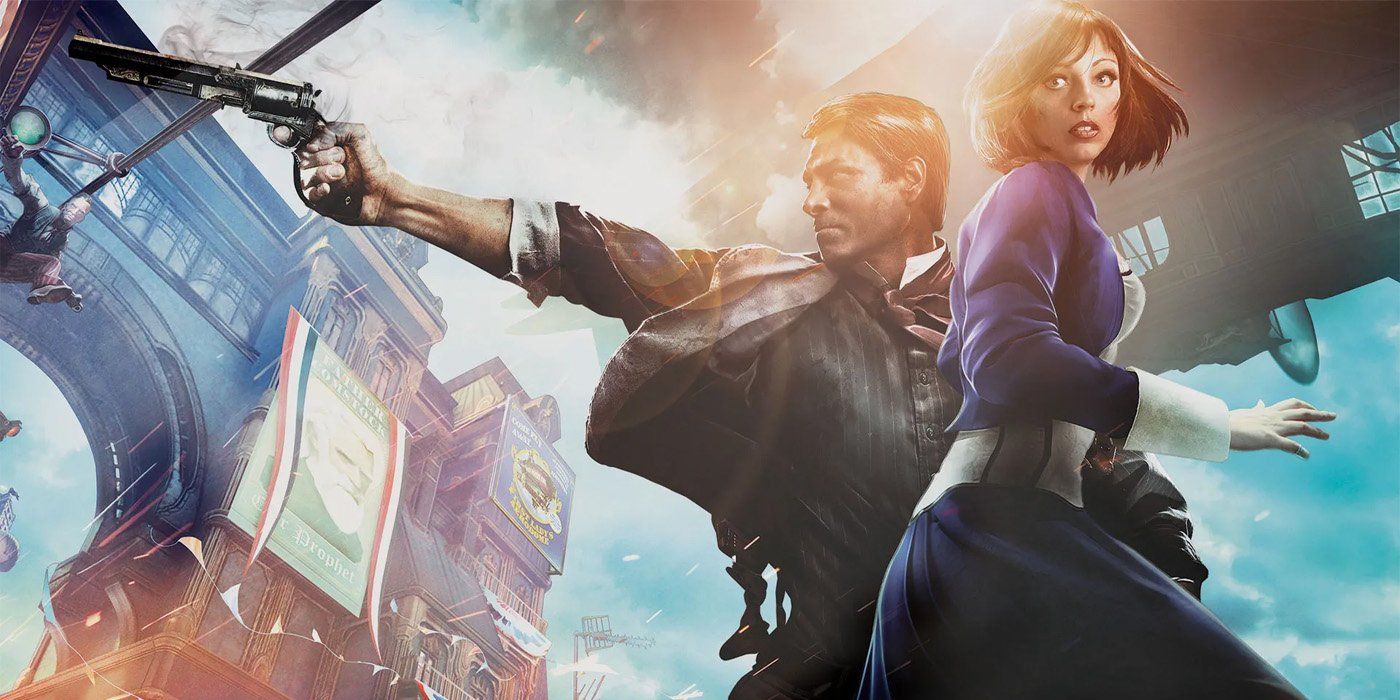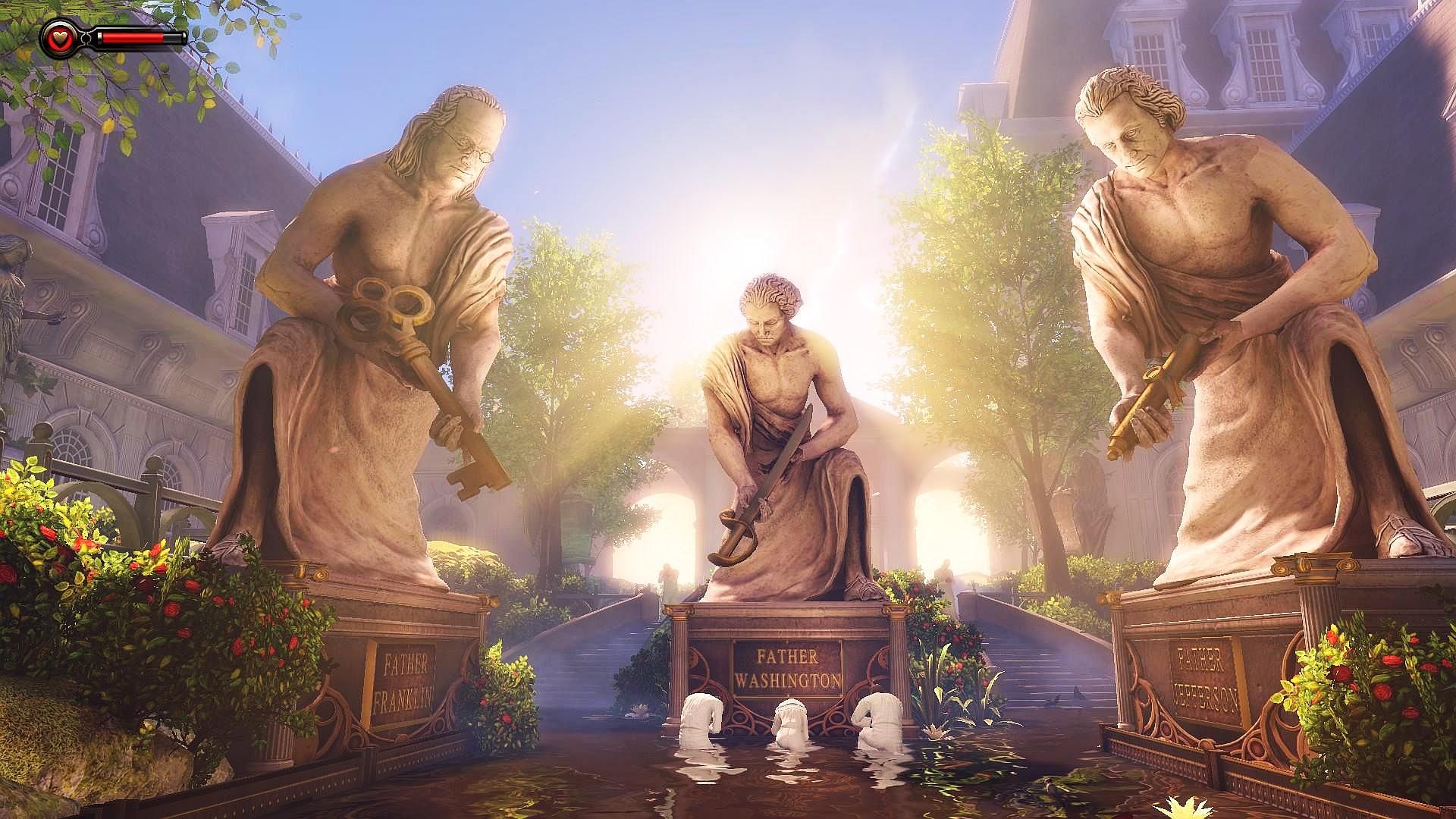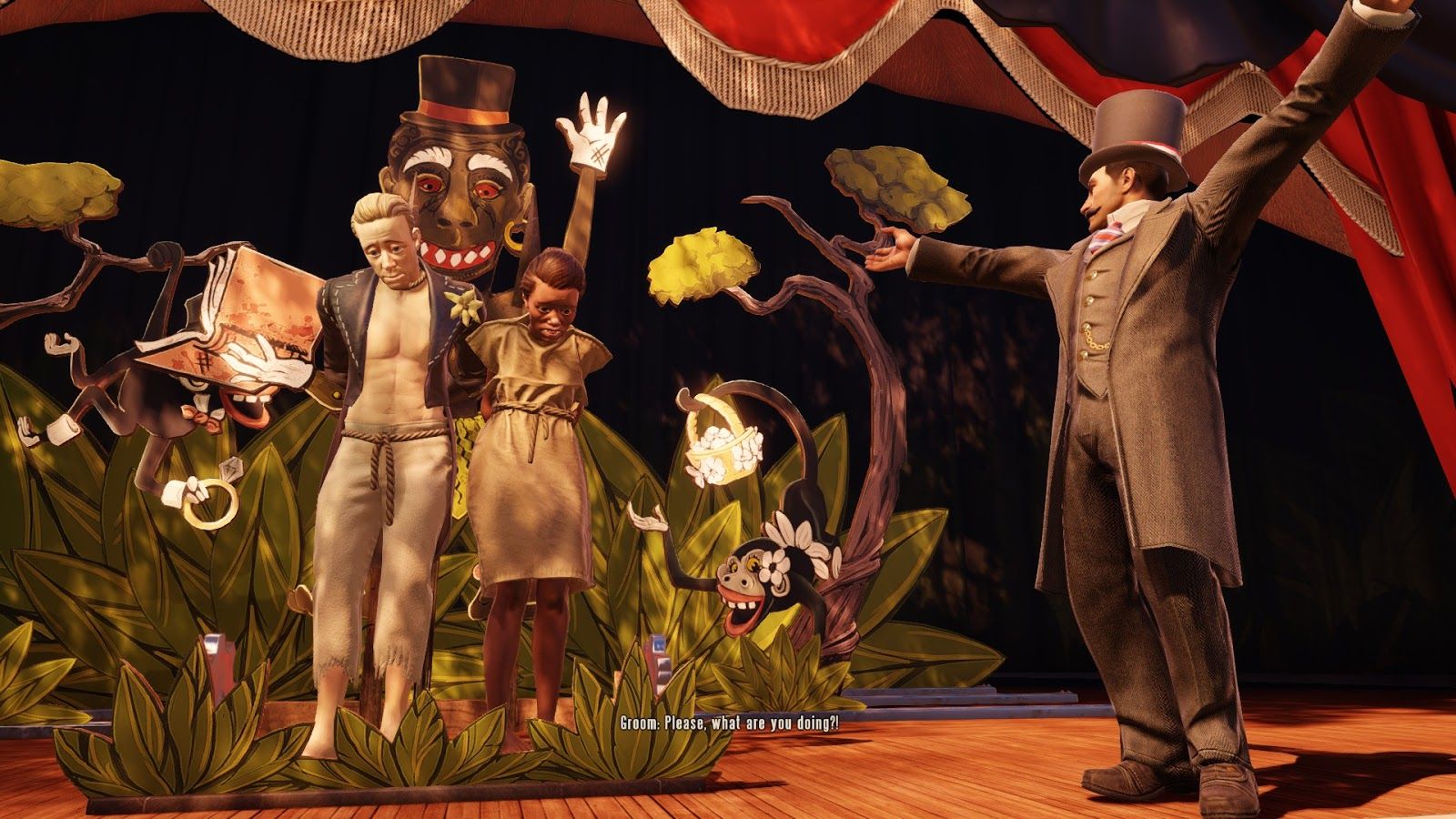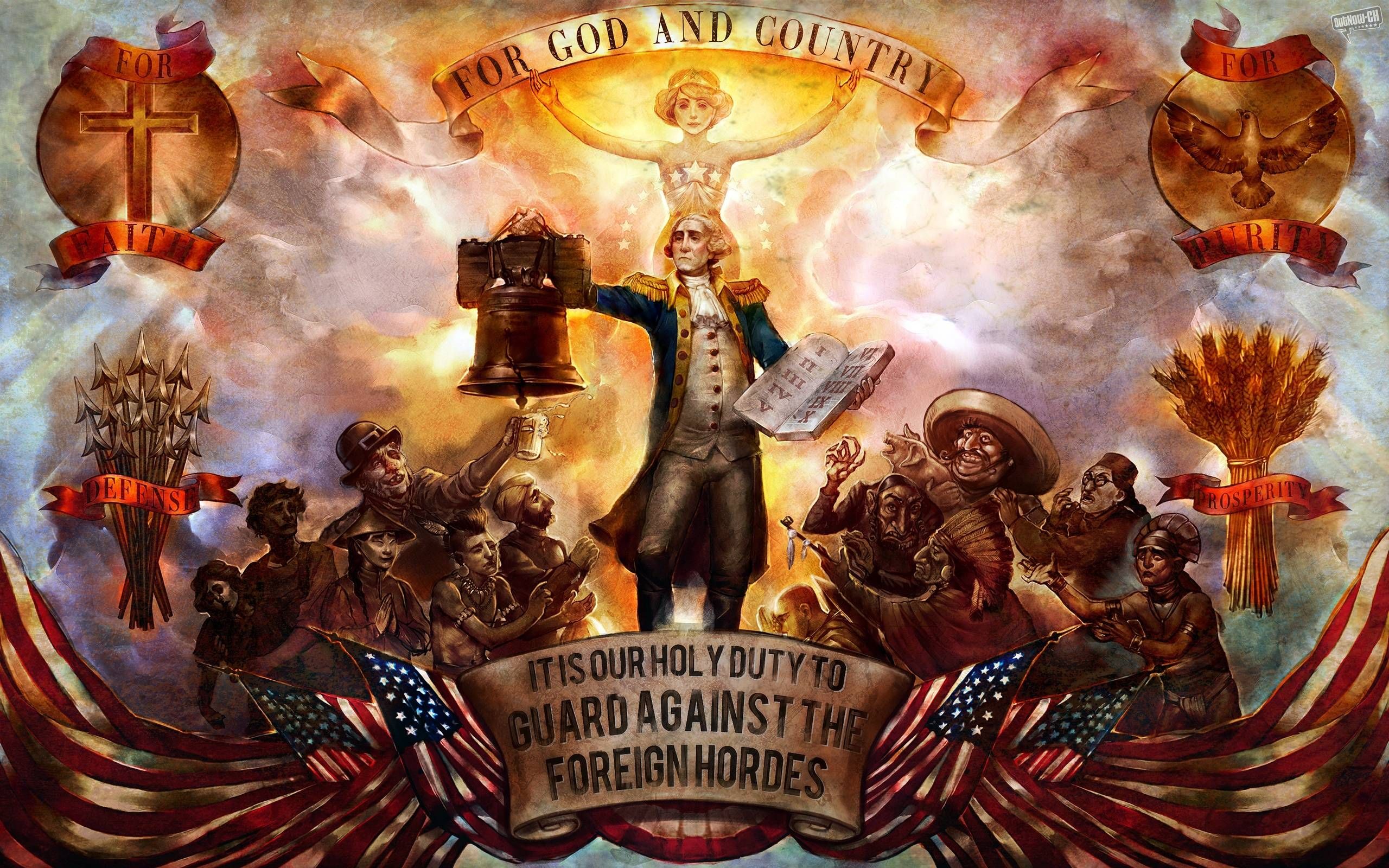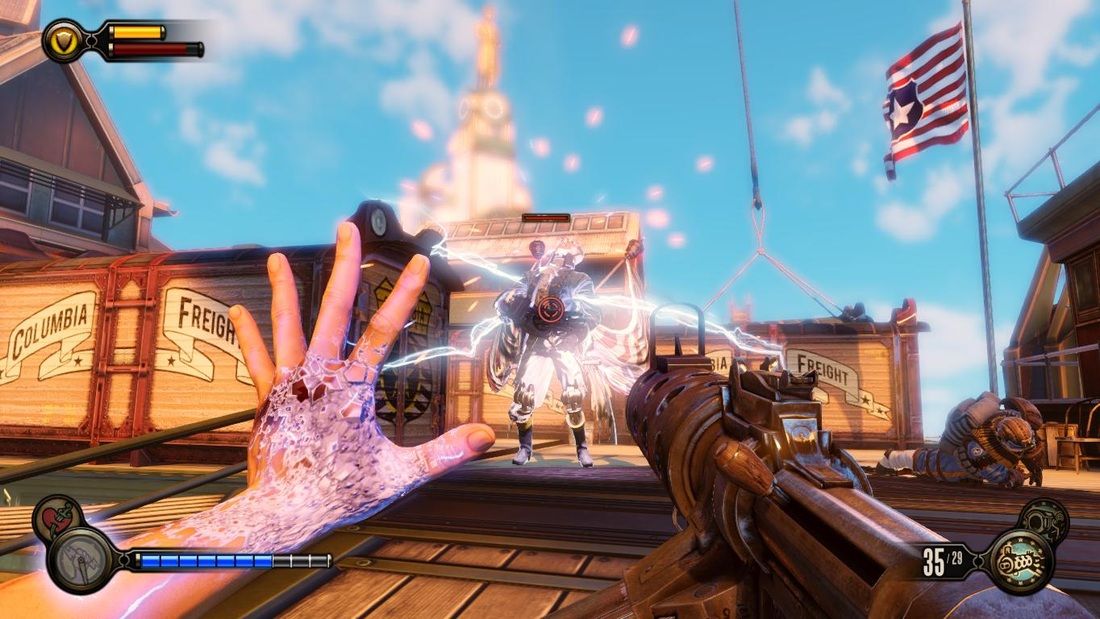Fans have been awaiting a new BioShock game for years, but even with no official confirmation on a release, there's still plenty to talk about when it comes to the franchise. The last entry in the acclaimed series: BioShock Infinite moved away from the underwater city of Rapture in 1960 to the floating city of Columbia in 1912. The game dealt with a number of controversial themes, from racism to religious extremism, garnering both praise and criticism for its execution.
Even with the change in setting, the intense first-person shooter action and complex storytelling remained the same. Along with racism and religious extremism, the game also tackled hot-button issues like American exceptionalism and nationalism, drawing them into the spotlight in ways that made both critics and the general public highly uncomfortable. Let's take a look at what made Irrational Games' BioShock Infinite one of the most controversial video games to ever hit the market.
Bioshock Infinite's Depiction of a Racist, Dystopian America
BioShock Infinite's plot revolves around protagonist Booker DeWitt as he explores Columbia in search of a mysterious woman named Elizabeth. As Booker travels through the city, it becomes clear that Columbia is actually a racist dystopian version of America. The city's leader and the game's main antagonist, Zachary Comstock, is viewed as a prophet, with the Founding Fathers as religious icons. The city's ruling class is a group of elitist ultra-nationalists that work to keep minority races underneath them as much as possible through racial segregation.
The opening sections of the game lean heavily on this. During the opening, Booker must participate in a forced Baptism in order to gain access to the city. Once inside, he almost participates in the stoning of an interracial couple. Later, when Booker and Elizabeth meet up, they walk through a museum exhibit that champions a whitewashed version of American history, with particular disdain towards Abraham Lincoln's freeing of the slaves.
Because the game has Booker fighting characters who support these racist ideals, some interpreted the game's themes as promoting white genocide, as well as accusing the game of being racist against white people. This led to some antisemitic attacks against the game's director, Ken Levine, who is Jewish. More recently, Infinite has been critiqued for what some see as bothsideism and inadequately addressing the issues the game brings up.
The baptism scene mentioned earlier, as well as the game's overall presentation of religion, was also criticized by some religious gamers as "offensive," "irritating" and/or "eye rolling." One gamer was so uncomfortable after playing that scene that they asked for a full refund on Steam. Even one of the game's developers threatened to quit over the game's depiction of religion.
A Controversial Depiction of American Exceptionalism
In the broadest sense, the concept of American exceptionalism revolves around the idea the United States' history and mission is superior to that of other nations, and it is the duty of the nation to spread that message across the world. This idea is cranked up to the extreme in Infinite. Comstock's racist propaganda and God-like status is constant throughout the game's run, as well as the cult of personality that he has built up around him. It is revealed near the end of the game that Comstock wants to use Columbia to invade other cities down below and use Elizabeth as a means to do so.
This extreme view of exceptionalism was also criticized, mostly from the same people who felt that the game promoted white genocide. They believed that the game was insulting their patriotism, and trying to make them feel bad for having such a positive view on American ideals.
BioShock Infinite Uses Violence as a Narrative Device
BioShock Infinite is a violent game. Not only are you gunning down hordes of enemies, but you are also wiping them out with supernatural powers known as Vigors. Enemies are set on fire, eaten by crows, and even suspended in mid-air for quick kills. There are giant robots with turret guns, a hook-like weapon that can decapitate your enemies, and even some interdimensional shenanigans thrown about.
The game's extreme violence wasn't criticized for how excessive it is, but rather for being too much of a distraction from the game's story. Some went as far as to say that the violence detracts from the overall experience. There were those who defended the violence in the game, believing that it added to the game's intense themes. Levine defended the violence in the game as a narrative device.
Regardless of how one might feel about the game's depictions of racism and violence, BioShock Infinite has cemented itself as one of the most memorable and talked about games of the seventh console generation. One can only imagine how crazy, chaotic, and controversial the next installment might be.

